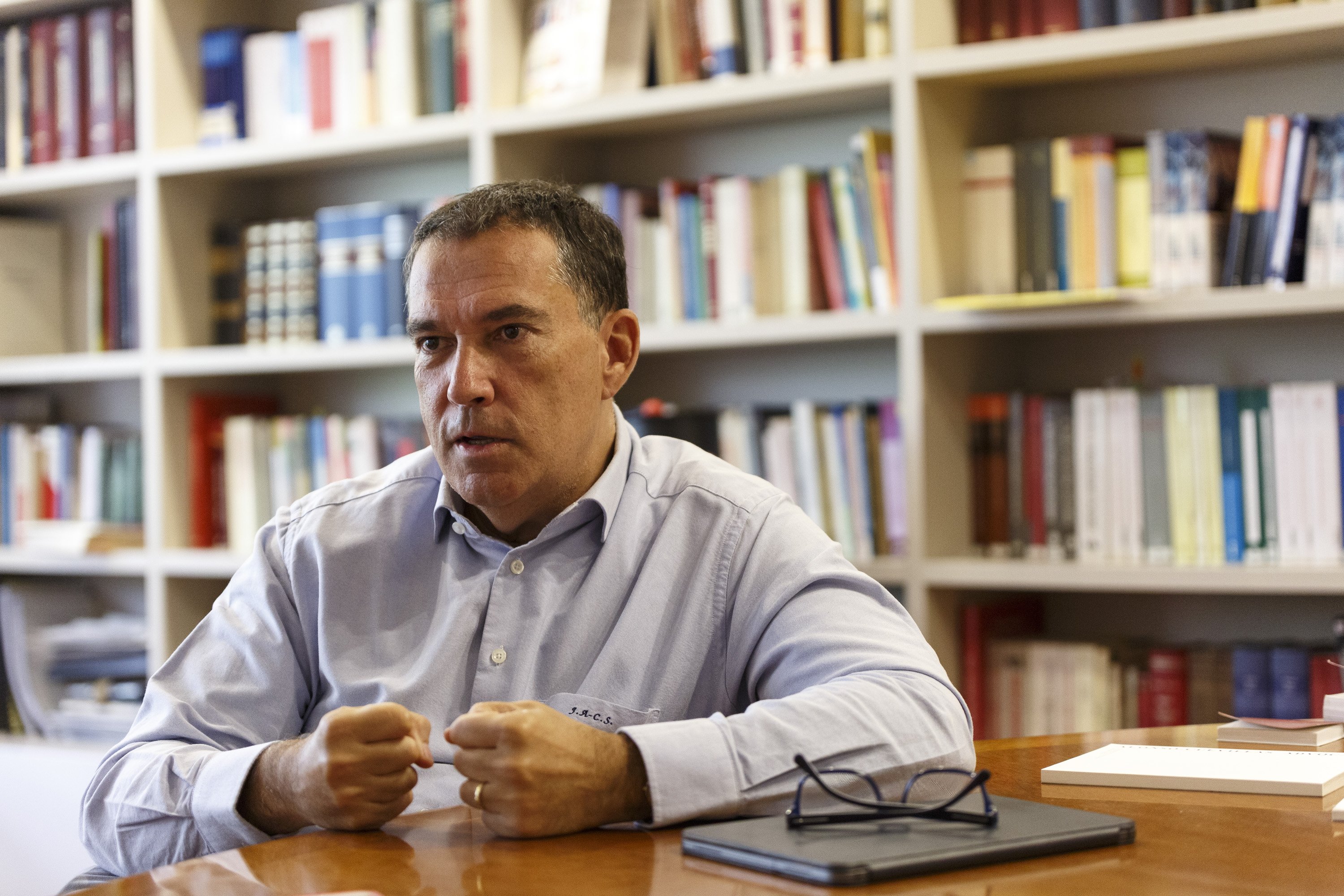Jaume Alonso-Cuevillas was a lawyer, economist and professor in criminal law at the University of Barcelona, known for having been the dean of the Illustrious College of Lawyers of Barcelona. In autumn 2017, however, his life changed when he took on the legal defence of the Catalan cabinet amidst the independence push.
Two years later, most of those ministers are in prison awaiting sentencing or abroad in exile. Alonso-Cuevillas has become a well-known face and now a politician, a member of Spain's Congress, at the same time as continuing to lead president Puigdemont's defence internationally.
In this interview, he takes El Nacional behind the scenes and into the back rooms which saw those life-changing decisions. He talks us through everything from his first meetings with Puigdemont and his cabinet and the day vice-president Junqueras and his colleagues were first sent to prison to his predictions for the future in terms of the Catalan-Spanish conflict and the sentences from the Supreme Court.
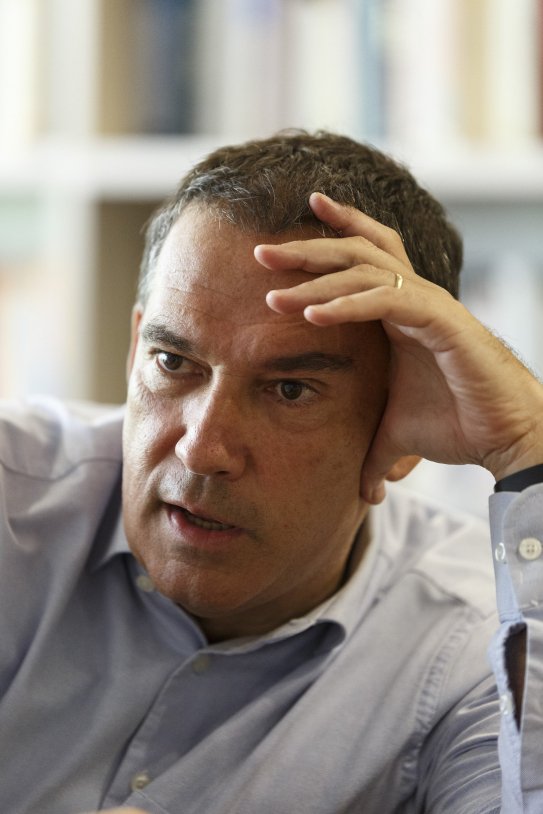
Translator's note: For ease of reading, where I have added longer explanations or context, I've put them in italics immediately under the answer in question. Shorter clarifications are, as normal, in square brackets within the answers.
When did you realise this case would change your life?
Doubtlessly, when I took on the defence of the president and the whole Catalan government. And that was 7th September [2017]. The director of the Legal Service of the Catalan Government, Cesc Esteve, calls me and ask me if I can have a meeting with the senior officials of the government who the Civil Guard had summonsed during July 2017. That summer I'm already into criminal textbooks for some intensive preparation, thinking it would be up to me to defend some of these senior officials from this second level of the government. On 7th September, the second day of the convulsive plenary session [in the Catalan Parliament], Cesc Esteve asks me if I would be willing to take on the defence of the cabinet. They were looking for a lawyer who was not related to any corruption case, nor the 9th November [2014 unofficial independence referendum]. And they sensed that this case would be much more procedural than criminal. They wanted a new lawyer.
Note: The "convulsive plenary session" of 6th and 7th September 2017 was the debate and vote on the laws laying the groundwork for the 1st October independence referendum, and what was meant to happen afterwards.
Did you have any relationship with any member of the government? Did you know the ministers?
The one I knew best was [justice minister] Carles Mundó thanks to a commission he created in the Procedural Law master's. I'm proposed by Cesc Esteve and Mundó backs me. On the 11th [September], day of the Diada [Catalan National Day], I get a message asking if I can go the next day to the cabinet meeting. On the 12th, I enter that room, with the government's secretary, the president, the vice-president, all the ministers and Cesc Esteve. I'd read the first lawsuit for disobedience, malfeasance and misuse of public funds from the High Court of Justice of Catalonia. I gave them the explanation and Puigdemont said: "We've got it great, [you're] hired!". And whilst we're there they arrive from the court to serve the summonses. They'd come to summons the whole government. At that moment we decide what to do and we decide that to find out whether the suits are the same for everyone or not, the president and a minister have to go out. And the president and the presidency minister, Jordi Turull, Cesc Esteve, the government secretary and I go out. By chance, what's more, the court official who had served the summonses was a student of mine years ago, which leaves me as the king of the castle there. At that moment we confirm that the lawsuit is the same for all of them. They ask us if the rest of the ministers are there and we tell them they've already left. Carles Mundó was hidden behind a door, [interior minister] Quim Forn was also around there...
They ask us if the rest of the ministers are there and we tell them they've already left. Carles Mundó was hidden behind a door
In the end, however, you weren't the lawyer for the whole government...
Here is where I tell Mundó that we have to create a team and he tells me that the people from ERC trust Andreu Van den Eynde. With Andreu, Carles Mundó and I start to look for a team. The initial idea wasn't to split ourselves along party lines, but across them. Then Mundó decides that the ERC ones will go with the firm Eynde Penal, and Jordi Turull and Carles Puigdemont get annoyed over that decision. And then the 27th October arrives.
In parallel to the legal part there was the political side. Did you think that any political decision could influence the government's legal situation?
Seeing that in the TV debates they continued talking about the right to self-determination, I went to see Jordi Turull to explain to him that if they didn't have the strength to apply it, it was a lost battle and that we had to emphasise the violation of basic rights the Spanish government was carrying out. Turull isn't sure the people would understand that and arranges for me to go to [Catalan public channel] TV3 and I give a live class on procedural law. And it's following that that my life changed with the media profile, but when it really changes for good is when the second lawsuit arrives. I do have powerful memories from that.
The second lawsuit is the one from the National Audience court which arrives on 31st October...
Yes. We meet here in my office on 1st November with a [copy of the] lawsuit I'd just managed to get through the press. I'd asked the whole cabinet to come here at 12. Josep Rull had received the summons gone eleven at night. The others had been receiving it that morning. They'd summonsed us for 9am the next day. We had to spend the night in Madrid. We couldn't go there by train or plane, because the climate was difficult. We'd just got the lawsuit via the press and I hadn't read it all. All our concerns were logistical. To see how we would organise the trip. I made the journey in my car, which was driven by a Mosso d'Esquadra [Catalan police officer], with Joaquim Forn and his wife, and Jordi Turull and his wife. Like a funeral procession, as you can imagine.
I didn't dare give any advice. It was very difficult. If you come, you've got a risk of going to prison
Joaquim Forn had originally gone to Brussels with Puigdemont...
Both Joaquim ["Quim"] Forn and Meritxell Borràs called me, asking: "Jaume, what should I do?". I sketched out different scenarios for them. I didn't dare give any advice. It was very difficult. If you come, you've got a risk of going to prison. Mundó was in contact with [Spanish] justice minister Rafael Catalá who told him that nothing would happen or that at most they would be inside for a very short time. Within the Spanish government there were two different schools of thought: one was more hardline and is the one which won out and another which said they shouldn't create martyrs and didn't contemplate imprisonment. As such, when Quim and Meritxell called me, I thought prison was quite possible, but I couldn't tell them whether it would be short-term or long-term or savage, as it has been. Catalá told Mundó that if they swore allegiance to the Constitution, nothing would happen to them.
Did you tell them that?
From our car it was being discussed with Mundó and he's the one who told us what they'd said. They were asked to pledge allegiance to the Constitution and renounce the unilateral path [to independence]... Then, staying abroad wasn't easy either, because apart from the matter of logistics, [Belgian lawyer] Paul Bekaert himself wasn't telling us that it would go well for us.
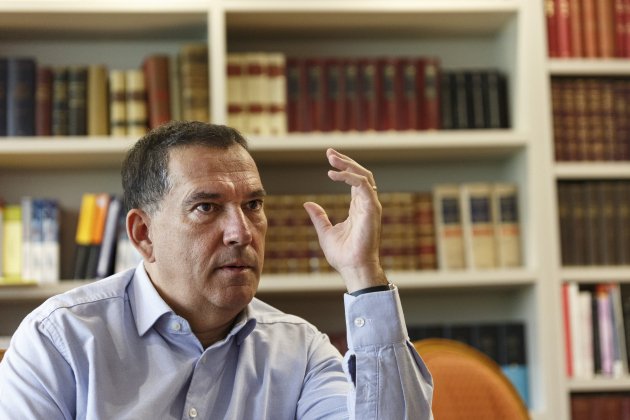
Prison or exile
Abroad, in exile, there were Carles Puigdemont, Toni Comín, Clara Ponsatí waiting for a European Arrest Warrant...
When I defended [them against] the first warrant, the objective was to try to prolong things to be able to campaign for the 21st December [2017 Catalan Parliament election]. We looked for legal strategies to try to win time and we managed to prolong it a bit and the hearing was on 4th December. That night I go on Més 324 and talk of "moderated optimism". The surprise comes on the 5th when [judge] Llarena withdraws the warrant. If you go and the European Arrest Warrant is successful, then you're done for whatever.
Note: "Més 324" is an evening debate and interview show on Catalan news channel 3/24.
Had all that been explored in advance?
After the imprisonment of the Jordis [on 16th October], the faces of the whole cabinet are already more serious.
Was going into exile considered?
On 29th October, I have dinner in Sant Julià de Ramis in the president's house... [Long silence]
And did you know that he was leaving and how?
On the 29th, I have dinner with him and that's it.
So, before all that, there had been no legal consultation about what could happen if they stayed or left?
I've had meetings with the president and certain members of the government. Clara Ponsatí was interested in speaking with me and we had a long conversation. I'd had chats with some of them about that.
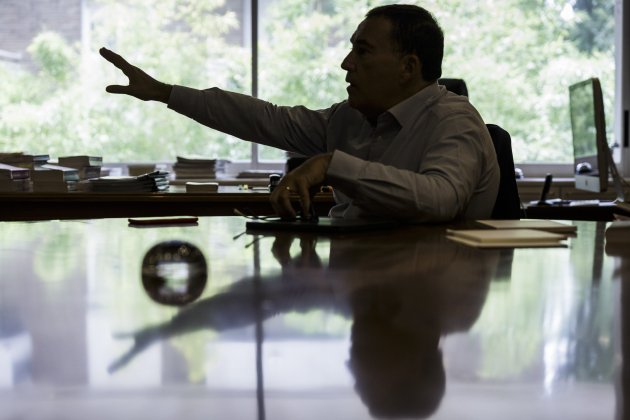
The hours before they went to prison
How was the 2nd November at the National Audience court?
It was humiliating. Andreu was at the Supreme Court with the Bureau of the [Catalan Parliament]...
Why did they do it the same day?
They were rushed. Afterwards, a state lawyer tells me it's a shoddy job and they were perfectly aware since the application of [article] 155 [of the Spanish Constitution, suspending Catalan autonomy] that the lawsuit from the Supreme Court was nonsense. I remember the complaint against the Jordis and discussing it with two law professors and saying "they've lost their minds". They went as far as to tell me that the complaint against the Jordis had been drafted before the 20th September and that initially they'd considered whether it would be against Puigdemont. The lawsuit against the Parliament's Bureau, it's noticeable that initially it was the only one and was meant to be against everyone. But then they applied [article] 155 and that meant [the cabinet] lost aforamiento [status, so] only the Bureau went to the Supreme Court.
Note: The key events in the case against the Jordis occurred on 20th September 2017. "Aforamiento" means that an individual has the right to be tried by a special court; in Spain, it's a status enjoyed by, among others, the government's ministers, all members of the Congress and Senate and all judges and prosecutors. The theory is that the system avoids the threat of political pressure being exercised on ordinary courts in the case of such trials, or a situation of judges or prosecutors being tried by their immediate colleagues.
All of that happened within 48 hours. From being notified of the lawsuit to testifying. Was there time to prepare the hearing? Were there guarantees?
On the 1st, as we were heading to Madrid, I'm dictating from the car a motion calling for the testimony to be suspended, calling on their right to defence, saying that the lawsuit is 116 pages long. I arrive early to try to speak with the judge asking for the testimony to be suspended. First they tell me that it will be settled when the judge comes and when she arrive she says we're starting. I argue that ERC's lawyer isn't there. The judge said that we would start with my clients, but I replied that he still had to be there because if one of mine would say it was all Junqueras's fault, he had to have his lawyer there. But we started.
Note: Andreu Van den Eynde managed to get the Supreme Court hearings with the Bureau delayed by a week, but arrived an hour late to the National Audience.
A state lawyer tells me it's a shoddy job and they were perfectly aware that the lawsuit from the Supreme Court was nonsense. They went as far as to tell me that the complaint against the Jordis had been drafted before the 20th September
That morning, all the ministers not in exile arrive together to the court, except for Santi Vila, who has already resigned, and Oriol Junqueras who has entered earlier at 8am. Why?
I don't know. In theory we were all going together. Junqueras distanced himself. There was a security detail prepared with the Mossos who were escorting the cars who made the link-up with the Spanish police so that we could stop in front [of the court]. We were all in a group. Junqueras arrived earlier at his own decision.
What's your memory of the testimony and the hours in the National Audience?
It was ignominious. We agree that they would only respond to our questions. When Turull starts [answering a question], the judge picks up her mobile.
Note: The moment the interviewee is referring to occurs at 4:55 in the video below, as Turull starts answering a question, explaining that at that time he had been in office as a minister for less than four months.
The National Audience is the architecture of the repression. Corridors below ground. Andreu and I escaped to look for some crisps and Coca-Colas from the machine for the press. We'd entered at 8am and it was 5 in the afternoon. Between the declarations, which went quickly, and the hearing, they kept us waiting for a while.
The hearings had to be one-by-one. They didn't have the documentation ready to evaluate everyone's personal circumstances. They hadn't made photocopies. They didn't fit in the room... They kept us waiting for three hours which seemed endless. A humiliation. There wasn't even a pitiful watercooler. It was a lot of hours. I told Quico Homs that the team had to be expanded. We'd already spoken with some lawyers like Cristóbal Martell and Jordi Pina. I had to focus on the three who were abroad. I couldn't be defending against European Arrest Warrants with clients in prison.
The next day it was striking to see them not having shaved, with suits, sweaty, wrinkled, without ties or laces in their shoes. They'd slept like that
How did you avoid them being sent to different prisons?
We made a lot of calls. The next day it was striking to see them not having shaved, with suits, sweaty, wrinkled, without ties or laces in their shoes. They'd slept like that. I was like a social worker. I took them their suitcases, I paid into their prison accounts, 50 euros each. The men were much better off because there were more of them and they had the luck of being with Carles Mundó, who [as a lawyer] knows the world of prisons and calmed them down. On the other hand, the women were more affected. There were only two of them. Alcalá-Meco [prison] is awful. In the case of Dolors Bassa, they had to go to [department store] Corte Inglés to buy her a change of clothes, she'd got nothing. It was brutal.
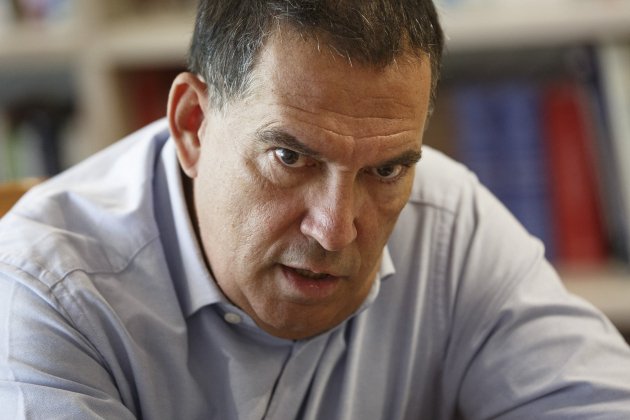
Justice and politics
When they decide to stand for election in December 2017, do you have to think of a legal strategy in case it harms their case?
I don't believe it can harm them legally. Some are advised against it by their lawyers and decide not to be candidates.
Did Puigdemont really think of returning?
Yes, he's contemplated it on many occasions. I didn't know him and I've seen him in very intense situations. He's very strong mentally and very determined. They can accuse him of being many things, but certainly not a coward. If at some time he believes that, for the good of the cause, it's appropriate for him to hand himself in, or if they hand him over or arrest him, if he has to play the card of political prisoner, he'll play it. On 30th January [2018], he seriously considered coming, but everything was aborted. If he had come, nobody would have known about it. There was a plan to come to be invested [president of Catalonia] and he knew that when he left there he would be going to Estremera [prison]. The evidence of that is that the secret services knew it.
Puigdemont is very strong mentally and very determined. They can accuse him of being many things, but certainly not a coward. If at some time he believes that, for the good of the cause, it's appropriate for him to hand himself in [he'll do it]
How would he have come?
There was a plan. But when the plenary session is called off, he's not going to come. He knew that if he had been invested, it wouldn't have lasted at all. But he was willing.
Did you suspect his arrest in Germany was coming?
Llarena gives up the European Arrest Warrant when he gets the tip that it won't go well. We were aware than any trip was dangerous. A danger from the warrant [being reactivated].
But to the extent he would be arrested?
That was a miscalculation by the Spanish justice system. We knew there was a risk of a European Arrest Warrant. When you activate one, it's immediately communicated to Interpol and Europol and there's an arrest warrant and within an hour it's done. He'd got this risk in Denmark, in Finland... everywhere. They follow him and make the mistake of arresting him in Germany. Certainly our task would have been more difficult if they'd arrested him in Denmark. But as justice in Spain is politicised... "Merkel is our friend...", but German judges are independent.
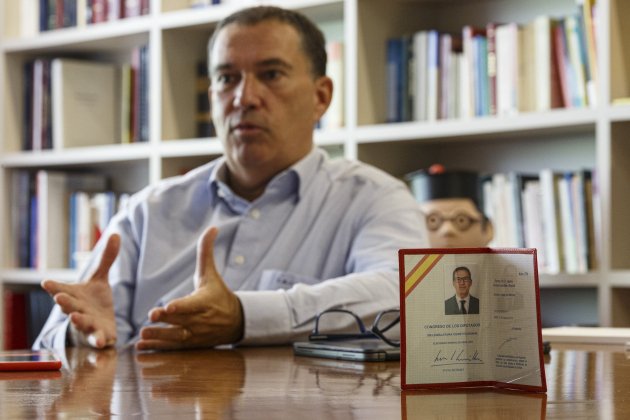
Cuevillas, el diputat
Now you've entered politics in a tricky situation, with a failed investiture and you continue working as a lawyer? How are you managing with these two roles?
This bipolarity... [laugh] I'm a lawyer. I wasn't an activist, nor am I anywhere, nor did I know Puigdemont. They came to look for me as a lawyer because the director of legal services had been a student of mine. It's true that the defence in this case, as it's a political trial, then the defence is very political too. And in a political case, the defence takes place as much in the courtroom as outside it. And that means you have a lot of media presence. [...] That's what causes the evolution from being a lawyer to being a lawyer in a political case and having to explain the legal-political reasoning. There's not a clear boundary between jurist and politician. Because by defending a political case they get mixed. What's more there's been, personally, great anger over the abuse of rights. I know that justice is imperfect, but the system continues to run, but I've found myself in a case whether nothing is respected nor is their a willingness to respect anything. In private, everyone says there was neither rebellion nor sedition and that it's an outrage. People don't dare say what they think because the system is so powerful that it excludes you. I've been moving towards the political side without any vocation.
You're now in the Congress in Madrid. With the different elections over the last few months, were you able to choose where you went? Would you have liked somewhere else?
Last August, it reaches me via three routes that my name is sounding as a possible candidate for mayor of Barcelona. And one of the days I go to Waterloo, I say to Carles Puigdemont: "Don't even think about it", and he tells me I've become a media figure... I tell him that I'm there for the case, but that I'm not standing as mayor. I mention that I would like, if I have to do something, then rather MEP, because it makes more sense for the denunciation [of the situation] I'm making internationally to do so before the European institutions. It's two weeks a month and allows me to balance it better with the law firm... It seems good to him, the topic develops and everyone was in agreement and, in fact, I tell my wife: "This won't go well, because everyone agrees". When Puigdemont decides that he will be the candidate [for the European Parliament election], that's when they propose that I run for Congress and I say no. The decision had to be very quick. They proposed it to me on a Thursday and I had to say something on Saturday and I said no. That Saturday, I went to Bilbao with [media mogul and activist] Jaume Roures and [singer-songwriter turned politician] Lluís Llach, and Llach ends up convincing me: "As a friend I advise you to and as a citizen I ask you to".
In private, everyone says there was neither rebellion nor sedition and that it's an outrage. [In public] people don't dare say what they think because the system is so powerful
We've got the pending questions of investing a Spanish government and the sentence from the Supreme Court. What's your evaluation in political and legal terms?
No other verdict would be appropriate than acquittal. Legally speaking, no other verdict would fit, at the most a conviction for disobedience. But the sentence will be harsh. My prediction is that it will be half of what prosecutors are asking for, prison terms of between 8 and 12 years. Maybe they'll go for conspiracy to rebel. There are those who say they'll go for sedition or conspiracy to commit sedition. It's a technical debate. The sentence is practically written: if they want to, they could release it next week. They've met six times. They're dedicated to it. They could release it in August to catch us in the middle of the holidays, but they're afraid of the reaction. A case with a political impact. On [Catalan national day] 11th September, the fact there will be an election on 10th November... nor do I think they'll prolong it more...
But there's only an election in November if no government is invested in September...
Yes. But [presiding judge] Manuel Marchena aspires to be president of the General Council of the Judiciary and what he does now will be very valuable. Bringing it out before the 11th is to set off dynamite. Afterwards we'll be with the investiture or an election campaign. It's dynamite. The most intelligent thing is to bring it out in August.
The sentence will be harsh. My prediction is that it will be [...] prison terms of between 8 and 12 years
Everything seems to indicate the sentence will be read in the Supreme Court with the prisoners present...
They've said they'll do so. It's inhuman because there'll be another transfer [from the Catalan prisons where they are currently held] and it's a way of containing the reaction. If you've got them there, and the people here get too alarmed, they can be kept there. We're again in a situation where political factors are more important than legal ones.
Politically speaking, Pedro Sánchez gives a glimpse of hope perhaps? If there's another election, could it be worse?
With respect to Catalonia, they're all exactly the same. And Podemos are willing to sacrifice Catalonia. Whether Sáncehz or Casado or Rivera is in government, from the point of view of the political relations between Catalonia and Spain, it makes no difference. I believe that Catalonia will be independent in a matter of five to eight years and that the solution will be imposed from outside. And having Pedro Sánchez in government harms us more than it helps us. If you've got Casado or Rivera, Europe will see we're in a Franco era [version] 2.0 but, on the other hand, if you've got Sánchez, who's got the sheen of a progressive, it's harder in Europe. A PSOE government in Spain gives the legal system's outrages more legitimacy.
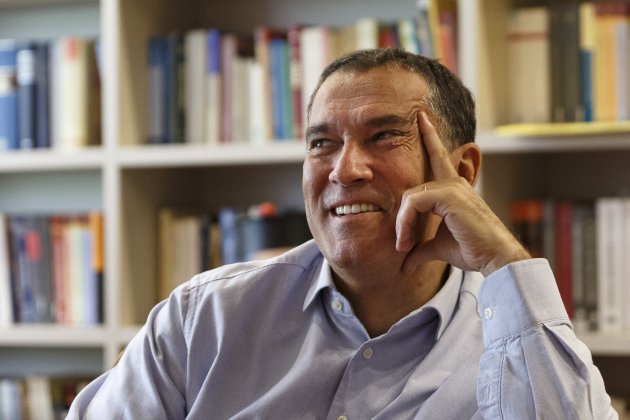
Do Puigdemont and Junqueras speak?
There's better communication in one direction than the other. Puigdemont cannot call the prison, they communicate through different paths.
Does Junqueras call Waterloo?
No.
Do you see yourself in the Congress for a long time?
I hope for as short a time as possible.
As short as possible?
I'm doing it as service. I earn a much better living at the law firm than in Congress. And I'll never do something I don't believe in. I wasn't prepared to vote anything but "no" to investing Pedro Sánchez as prime minister. I wasn't prepared to, and if in the end they had said that we had to abstain, I would have resigned. That gives me a lot of freedom. And if there's another general election, we'll see if they ask me back or not. Because I already told them I'm independent and that I'll act as an independent.

